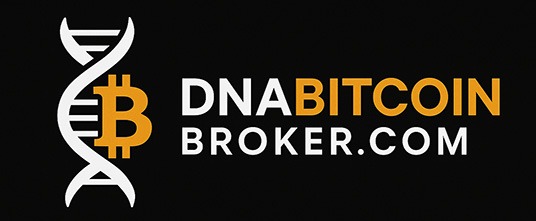Yes! Hundreds of billions of dollars are spent each year on public goods and services, but how much ends up in the hands of those who need it most? How much gets stolen by corrupt government officials, corporate executives, and others involved in the procurement process? It’s a problem that plagues just about every country in the world.
Corruption is a global issue that affects everyone. It deprives developing countries of billions of dollars every year that could be used to improve people’s lives. Following this, the OECD works with governments and businesses worldwide to promote transparency and integrity in public procurement.
Typically, corruption undermines public trust in government and encourages people to participate in corrupt acts by creating a negative environment where corruption thrives. It also creates an unfair playing field for companies competing for contracts, distorting markets and competition.
In 2020, The World Economic Forum’s report, Exploring Blockchain Technology for Government Transparency: A Public Procurement System That Works with Blockchain had crucial insights. The report explores the value of Blockchain for public procurement and corruption, describes how it could be used, and makes recommendations for how governments can leverage policy and Blockchain technology to stunt public corruption. It highlights four main areas where governments can leverage policy and Blockchain technology to stunt public corruption:
- Anti-corruption policies and regulations;
- Open data initiatives;
- Public procurement processes;
- A more efficient system for auditing state funds and spending at all levels of government.
Why Blockchain?
The public sector is rife with corruption, costing taxpayers billions annually. Blockchain-based procurement could help governments to disinfect – or de-corrupt – their procurement processes.
In simple terms, Blockchain-based procurement allows for increased transparency and accountability in government contracts. It does this by making the process more efficient and cutting down on costs, but also by providing an audit trail that prevents fraud from occurring in the first place.
The Blockchain is a chain of blocks, each block containing a timestamp and a link to the previous block. By design, a Blockchain is resistant to modification of the data — once recorded, the data in any given block cannot be altered retroactively without altering all subsequent blocks and the network collision.
This attribute makes Blockchain an excellent tool for facilitating trust between parties who don’t know or trust each other, such as business partners or suppliers, by ensuring that transactions are transparent and verifiable without relying on an intermediary.
Mobilising People Power During Procurement
The Blockchain-related investment, acquisitions, and patent filings are just the beginning. Soon, we can expect public Blockchains to deliver even more intrapersonal applications than we’ve outlined in this article, ones that will help individuals take action against corrupt officials and enhance the world’s fight against government misconduct. Blockchain technology has enormous potential to influence governments and reshape society for the better — if people can learn enough about it and what it can do at an individual level.
Blockchain can reduce corruption through several mechanisms that enhance transparency, accountability, and data security. Here’s how:
- Transparent and Immutable Record-Keeping
Blockchain stores records that are tamper-proof and publicly accessible. Once data is added to a Blockchain, it cannot be altered without detection, making it harder for officials or employees to manipulate records. This is especially useful in sectors prone to document fraud, like land registration, healthcare, and voting. - Reduced Middlemen and Direct Transactions
By enabling peer-to-peer transactions, Blockchain can minimize the need for intermediaries who may demand or accept bribes. For example, in government procurement, blockchain can allow direct bidding and selection, reducing opportunities for corruption. - Traceable Financial Transactions
Blockchain’s transparency allows every transaction to be tracked in real time. This capability can prevent embezzlement and misuse of public funds, as funds can be traced from their origin to their destination, including use in contracts or development projects. - Smart Contracts for Automatic Compliance
Smart contracts automatically enforce terms and conditions once they are programmed, without requiring human intervention. This can help ensure compliance in public tenders, welfare disbursements, and aid distribution, as the funds are only released when the predetermined conditions are met. - Enhanced Voting Security
Blockchain voting systems can provide a transparent, secure, and verifiable process that prevents vote tampering and election fraud. This ensures fairer elections and reduces voter manipulation, with every vote publicly verifiable. - Audit-Ready Data for Regulatory Bodies
Blockchain’s transparency provides instant audit trails, making it easier for regulators to investigate discrepancies without relying solely on internal reports, which can be falsified. This improves accountability within companies and government bodies. - Decentralized Identity Verification
Blockchain enables self-sovereign identities where personal data is controlled by individuals rather than institutions. This minimizes identity theft and corruption in areas like government aid distribution, ensuring that only eligible individuals receive funds or benefits. - Secure, Transparent Supply Chains
For sectors prone to product counterfeiting or “kickback” schemes, such as pharmaceuticals or food supply chains, Blockchain provides real-time tracking from origin to destination. This reduces opportunities for corruption in quality assurance and customs. - Incentives for Honest Behaviour
Blockchain can reward honesty in systems prone to corruption by introducing tokenized incentives. For instance, users reporting unethical practices in certain decentralized networks might receive tokens as rewards, encouraging transparency. - Public Contract Management
Blockchain allows for public recording and monitoring of contracts, like construction or service contracts, where funds allocation is often subject to corruption. With every transaction and contract term visible, there is little room for under-the-table negotiations or hidden charges.
Image Source: Adobe Stock
Disclaimer: This article is provided for informational purposes only. It is not offered or intended to be used as legal, tax, investment, financial, or other advice.












